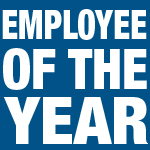 A recent CareerBuilder study shows three out of five companies use social media to screen potential candidates during the hiring process. Of those companies, 43 percent said they have found information that factored into their decision not to hire a candidate. This information shows just how important your social media profile is in the job searching process. From the moment you start looking for a job and throughout your career, your social media profiles can be important in finding and keeping a job.
A recent CareerBuilder study shows three out of five companies use social media to screen potential candidates during the hiring process. Of those companies, 43 percent said they have found information that factored into their decision not to hire a candidate. This information shows just how important your social media profile is in the job searching process. From the moment you start looking for a job and throughout your career, your social media profiles can be important in finding and keeping a job.
Secure Your Facebook
With 1.2 billion active monthly Facebook users who can easily use the new Graph Search tool to see every picture you’ve posted or learn about you, it’s smart to make sure that what you post is seen only by who you want to see it, not by the world. If you click the privacy button in the top right corner of your Facebook home page you can customize your security and privacy settings, which lets you share your life and all your information with friends and everyone else, or keep it all private.
Clean Up Your Facebook
View the updates you’ve recently shared and remove anything that could be controversial or questionable if viewed by a potential future employer. If you have inappropriate content, remove it, because it can affect whether or not you’re considered for a job.
Keep it Professional
Maybe this whole concept of using Facebook and social media in the job search is foreign to you, or maybe you’ve been using social media for a while for personal use, staying in touch with friends, or to further your career. For whatever reason, it is in your best interest to keep your social media sites as professional as possible, because you never know when an interested employer could be researching you.
Has Facebook helped you land a job, or has it hurt your job search or worse, got you fired? Share with us in the comments section below.






